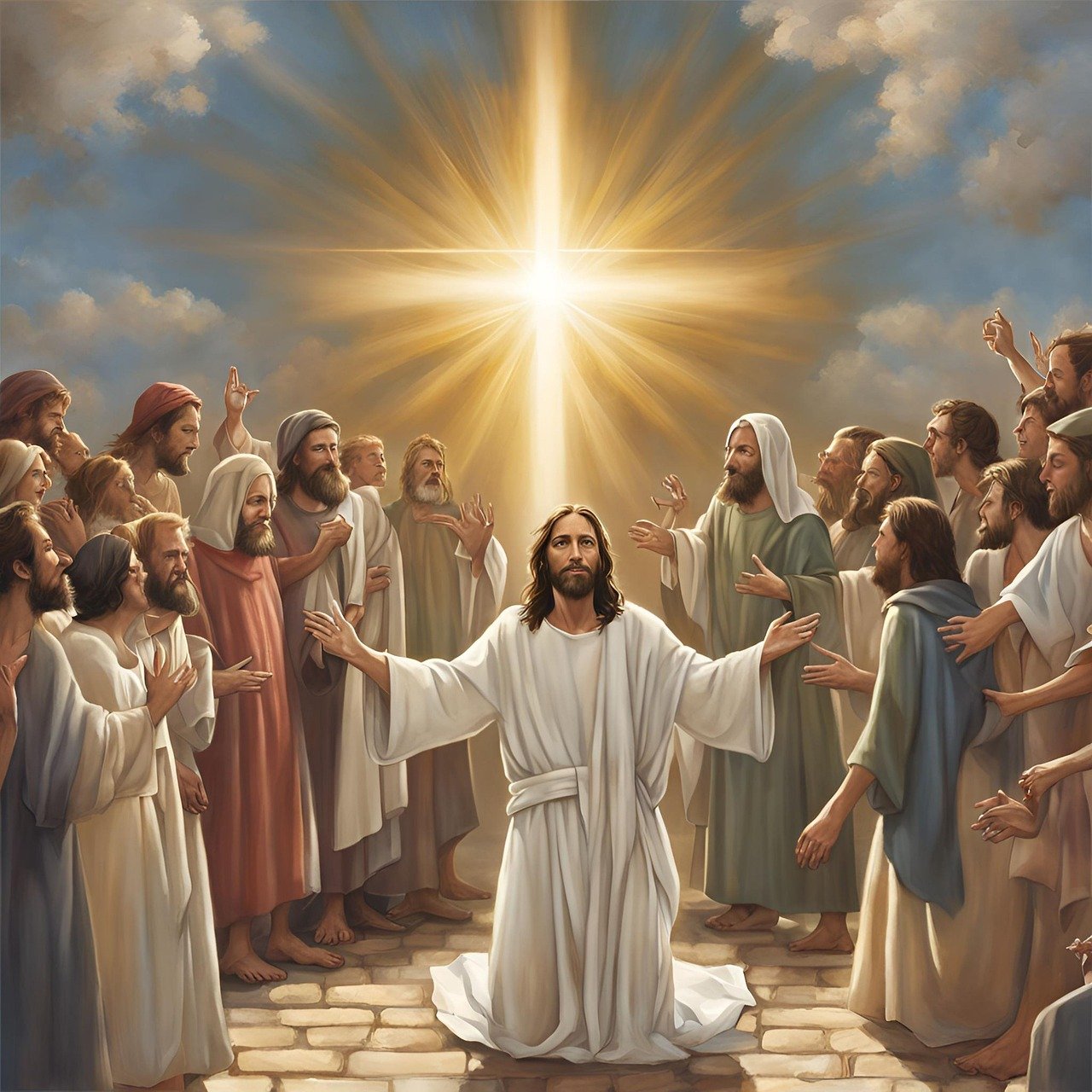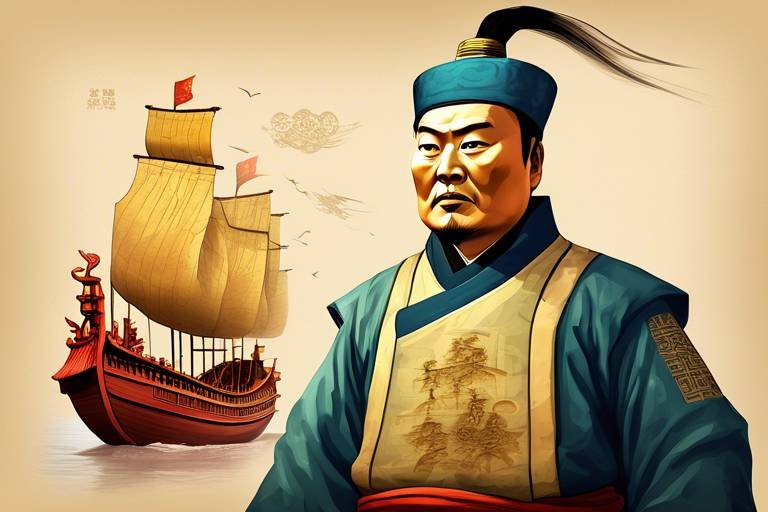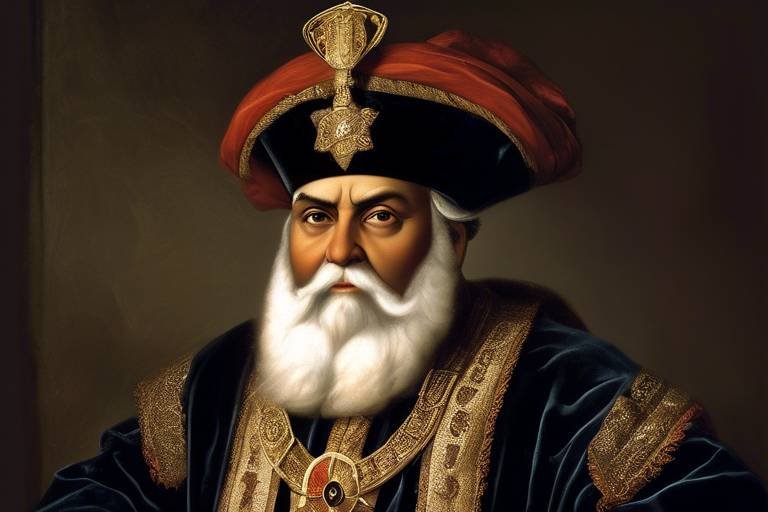Plutarch: The Biographer of Greece and Rome
Plutarch, the renowned biographer of Greece and Rome, stands as a towering figure in ancient historical literature. His works have left an indelible mark on the understanding of famous figures from antiquity, offering profound insights into their lives and legacies. Plutarch's meticulous approach to biography and his deep philosophical reflections have captivated readers for centuries, making him a central figure in the study of classical civilization.

Early Life and Education
Exploring the life and works of Plutarch, a prominent ancient historian and biographer known for his influential writings on the lives of famous Greeks and Romans.
Plutarch, born in Chaeronea, Greece, in the first century AD, was raised in a well-educated and affluent family. His early education was deeply rooted in Greek literature, philosophy, and history, which laid the foundation for his future career as a writer. Plutarch's exposure to the rich cultural heritage of Greece during his formative years greatly influenced his writing style and historical perspectives.
Studying under the renowned philosopher Ammonius in Delphi, Plutarch delved into the works of Plato and Aristotle, shaping his philosophical views and critical thinking skills. His educational journey not only honed his intellectual abilities but also instilled in him a deep appreciation for the moral and ethical teachings of ancient Greek thinkers.
Furthermore, Plutarch's travels to Alexandria and Rome broadened his horizons, exposing him to diverse cultural influences and historical narratives. These experiences during his youth played a pivotal role in shaping his approach to writing biographies and philosophical essays later in life.

Parallel Lives
Plutarch's is a renowned collection of biographies that stands as one of his most influential works. This series pairs famous figures from Greek and Roman history, drawing comparisons and contrasts between their lives and accomplishments. Through these parallel biographies, Plutarch offers readers a unique perspective on the virtues, vices, and destinies of these historical figures.
Each biography in is structured to highlight the similarities and differences between the paired individuals, providing insights into their characters and actions. Plutarch weaves narratives that not only recount historical events but also delve into the moral and ethical dimensions of his subjects' lives. By juxtaposing these figures, Plutarch invites readers to contemplate the complexities of human nature and the impact of individual choices on destiny.

Parallel Lives,
Parallel Lives is one of Plutarch's most renowned works, consisting of a series of biographies that compare the lives of famous individuals from ancient Greek and Roman history. In this monumental collection, Plutarch pairs off notable figures such as Alexander the Great and Julius Caesar, highlighting similarities and differences between their lives, virtues, and accomplishments. Through these parallel biographies, Plutarch aims to draw moral lessons and philosophical insights, showcasing the complexities of human character and the impact of individual choices on destiny.

a series of biographies comparing notable figures from Greek and Roman history.
Exploring the life and works of Plutarch, a prominent ancient historian and biographer known for his influential writings on the lives of famous Greeks and Romans.
An overview of Plutarch's upbringing, education, and the influences that shaped his writing style and historical perspectives.
Discussing Plutarch's famous work Parallel Lives, a series of biographies comparing notable figures from Greek and Roman history.
Analyzing the organization and recurring themes in Parallel Lives, shedding light on Plutarch's approach to biography and history.
Exploring Plutarch's collection of essays and dialogues known as Moralia, focusing on ethical and philosophical topics.
Examining Plutarch's philosophical beliefs and how they influenced his writings on morality, virtue, and the human condition.
Investigating the lasting impact of Plutarch's works on Western literature, philosophy, and historical understanding.
Exploring how Plutarch's biographies and essays have been received and interpreted by scholars and readers throughout history.
Discussing contemporary perspectives on Plutarch's writings and their relevance in the study of ancient Greece and Rome.
Plutarch's Parallel Lives is a captivating series of biographies that intricately compares notable figures from the rich histories of both Greece and Rome. Through detailed narratives and insightful analysis, Plutarch delves into the lives of these prominent individuals, drawing parallels and highlighting differences to offer a deeper understanding of the cultural and historical contexts in which they existed. This work serves as a unique bridge between the two civilizations, allowing readers to explore the interconnectedness and contrasts between key personalities from ancient times.
Stay tuned for the FAQs section!

Structure and Themes
Plutarch's Parallel Lives is a remarkable work that showcases his unique approach to biography and history. The structure of this influential series is intricately designed to draw parallels between notable figures from Greek and Roman history. By juxtaposing the lives of individuals such as Alexander the Great and Julius Caesar, Plutarch delves into the complexities of human character and leadership. Each biography is carefully crafted to highlight virtues, vices, and pivotal moments in the subject's life, offering readers a deep insight into the moral and political landscapes of ancient times.
Within the Parallel Lives, several recurring themes emerge, underscoring Plutarch's philosophical and ethical inclinations. One prominent theme is the concept of virtue and its role in shaping the destiny of historical figures. Plutarch's keen observations on how virtues like courage, wisdom, and justice influence the actions and outcomes of individuals provide readers with a nuanced understanding of human nature. Moreover, the moral lessons embedded in each biography serve as timeless reflections on the consequences of one's choices and the pursuit of excellence.
Plutarch's thematic exploration extends beyond individual virtues to encompass broader concepts such as fate and fortune. Through his narratives, he contemplates the interplay between personal agency and external circumstances, inviting readers to ponder the complexities of destiny and the unpredictable nature of life. By weaving together these overarching themes, Plutarch creates a tapestry of human experiences that resonates across centuries, inviting readers to reflect on their own values and aspirations.

Parallel Lives,
Plutarch's Parallel Lives is a renowned series of biographies that stands as a testament to his skill as a historian and biographer. In this monumental work, Plutarch pairs off notable figures from Greek and Roman history, drawing intriguing comparisons and contrasts between their lives and achievements. Through these parallel biographies, Plutarch offers readers a unique perspective on the characters and events that shaped the ancient world.

shedding light on Plutarch's approach to biography and history.
Exploring the life and works of Plutarch, a prominent ancient historian and biographer known for his influential writings on the lives of famous Greeks and Romans.
An overview of Plutarch's upbringing, education, and the influences that shaped his writing style and historical perspectives.
Discussing Plutarch's famous work Parallel Lives, a series of biographies comparing notable figures from Greek and Roman history.
Analyzing the organization and recurring themes in Parallel Lives, shedding light on Plutarch's approach to biography and history.
Exploring Plutarch's collection of essays and dialogues known as Moralia, focusing on ethical and philosophical topics.
Examining Plutarch's philosophical beliefs and how they influenced his writings on morality, virtue, and the human condition.
Investigating the lasting impact of Plutarch's works on Western literature, philosophy, and historical understanding.
Exploring how Plutarch's biographies and essays have been received and interpreted by scholars and readers throughout history.
Discussing contemporary perspectives on Plutarch's writings and their relevance in the study of ancient Greece and Rome.

Moralia
Plutarch's is a collection of essays and dialogues that delve into a wide range of ethical and philosophical topics. Within this compilation, Plutarch explores various aspects of human behavior, virtue, and morality through engaging narratives and thought-provoking discussions. The serves as a platform for Plutarch to express his views on the complexities of life and the importance of ethical decision-making.
One of the key themes prevalent in is the concept of virtue and its significance in guiding human actions. Plutarch offers insights into what constitutes virtuous behavior and how individuals can strive to embody these qualities in their daily lives. Through anecdotes and philosophical musings, he encourages readers to reflect on their own moral compass and the impact of their choices on themselves and society.
Furthermore, delves into the interplay between fate and free will, exploring the tension between predetermined destiny and individual agency. Plutarch navigates this philosophical dilemma with nuance, presenting various perspectives on how humans can reconcile their aspirations with the constraints of fate. This thematic exploration adds depth to the ethical discussions within the collection, prompting readers to ponder the complexities of human existence.
Additionally, features practical advice on leading a fulfilling and virtuous life, drawing from historical examples and philosophical principles. Plutarch's essays offer readers guidance on navigating moral dilemmas, cultivating personal excellence, and fostering meaningful relationships with others. The practical wisdom embedded within serves as a timeless resource for individuals seeking to enhance their ethical awareness and moral character.
In essence, stands as a testament to Plutarch's philosophical depth and ethical insight, showcasing his ability to engage readers in profound reflections on the nature of humanity and the pursuit of moral excellence. Through this collection of essays and dialogues, Plutarch continues to inspire contemporary audiences to contemplate the enduring relevance of ethical principles in a rapidly evolving world.

Moralia,
Plutarch's collection of essays and dialogues known as Moralia delves into a wide range of ethical and philosophical topics, showcasing his deep insights into human nature and morality. In Moralia, Plutarch explores virtues, vices, and the complexities of human behavior through engaging narratives and thought-provoking dialogues. These writings not only provide valuable lessons on how to live a virtuous life but also offer a glimpse into the social and cultural norms of ancient Greece and Rome.

focusing on ethical and philosophical topics.
When it comes to Plutarch's exploration of ethical and philosophical topics, one cannot help but be captivated by the depth and breadth of his insights. Plutarch delves into the essence of morality, virtue, and the complexities of the human condition with a keen eye for detail and a profound understanding of ancient philosophical thought.
Through his writings, Plutarch invites readers to ponder timeless questions about the nature of good and evil, the pursuit of excellence, and the role of wisdom in guiding one's actions. His philosophical views are not just theoretical musings but practical guides for living a virtuous and meaningful life.
Plutarch's engagement with ethical dilemmas and moral quandaries is not limited to abstract discussions but is grounded in real-life examples drawn from the lives of historical figures he profiles in his works. By examining the actions and choices of these individuals, he offers valuable lessons on integrity, honor, and the pursuit of justice.
Moreover, Plutarch's philosophical reflections extend beyond individual behavior to encompass broader societal issues, such as the role of government, the nature of leadership, and the dynamics of power. His writings serve as a mirror that reflects the complexities of human nature and the challenges of navigating a world fraught with moral ambiguity.
In essence, Plutarch's focus on ethical and philosophical topics is not just an intellectual exercise but a call to introspection and self-improvement. His works continue to resonate with readers today, prompting us to confront our own beliefs, values, and actions in the light of his timeless wisdom.

Philosophical Views
Plutarch's philosophical views were deeply intertwined with his ethical and moral beliefs, shaping his approach to writing on the human experience. He believed in the importance of virtue, character, and the pursuit of excellence in all aspects of life. Plutarch's philosophical musings often revolved around the concept of 'arete,' or moral virtue, emphasizing the significance of living a life guided by ethical principles and personal integrity.
Furthermore, Plutarch's philosophical views were heavily influenced by the teachings of ancient Greek philosophers such as Plato and Aristotle. He pondered questions of human nature, the nature of the soul, and the role of fate in shaping individual destinies. Through his writings, Plutarch delved into the complexities of human behavior, exploring the interplay between reason and emotion, free will and determinism.
One of the central themes in Plutarch's philosophical works is the idea of 'eudaimonia,' or human flourishing. He believed that true happiness and fulfillment could be achieved through the cultivation of wisdom, self-discipline, and moral excellence. Plutarch's philosophical views emphasized the importance of self-improvement, introspection, and the pursuit of knowledge as essential components of a meaningful and virtuous life.

Legacy and Influence
Plutarch's legacy and influence are deeply ingrained in Western literature, philosophy, and historical understanding. His extensive body of work, including the renowned Parallel Lives and Moralia, continues to captivate scholars and readers alike with its profound insights into the lives of famous Greeks and Romans. Plutarch's unique approach to biography, blending historical facts with moral lessons, has left an indelible mark on the study of ancient civilizations.
Throughout the centuries, Plutarch's works have been revered for their depth and complexity, offering a nuanced portrayal of human virtues and vices. The enduring relevance of his writings is evident in their continued exploration by contemporary scholars seeking to unravel the intricacies of ancient Greek and Roman societies. Plutarch's influence transcends time, resonating with readers across generations and inspiring new perspectives on history and morality.
Moreover, Plutarch's impact extends beyond the realm of academia, shaping popular culture and artistic expressions. His vivid portrayals of historical figures have served as a source of inspiration for playwrights, novelists, and filmmakers, breathing life into ancient narratives and sparking the imagination of audiences worldwide. The enduring legacy of Plutarch's writings serves as a testament to his enduring influence on the collective consciousness of humanity.

Reception in Later Centuries
Throughout the centuries following Plutarch's lifetime, his biographies and essays have been met with varying degrees of reception and interpretation. Scholars and readers have engaged with his works in diverse ways, appreciating the depth of historical insight and moral lessons embedded within his writings. Plutarch's nuanced portrayal of famous figures from antiquity has sparked admiration for his storytelling abilities and analytical approach to character depiction.
During the Renaissance, Plutarch's works experienced a resurgence in popularity as humanist scholars rediscovered and translated his texts, recognizing the value of his contributions to historical understanding and ethical philosophy. His influence extended beyond the realm of literature, impacting political thought and cultural discourse in profound ways.
In the Enlightenment period, Plutarch's emphasis on virtue, leadership, and the complexities of human nature resonated with thinkers seeking to reconcile reason with morality. His biographies served as a source of inspiration for individuals navigating the challenges of governance and personal conduct, offering timeless wisdom that transcended historical contexts.
As the field of classical studies evolved in the 19th and 20th centuries, scholars delved deeper into Plutarch's works, uncovering layers of symbolism, allegory, and socio-political commentary embedded within his narratives. The ongoing reinterpretation of his texts has led to a deeper appreciation for the multi-faceted nature of his writings, inviting new generations to engage with the complexities of ancient history and philosophical thought.

Modern Interpretations
Modern scholars and historians continue to find new ways to interpret and appreciate Plutarch's works in the context of contemporary understanding of ancient Greece and Rome. His writings have been a subject of ongoing analysis and debate, with scholars delving into the nuances of his biographies and essays to uncover deeper meanings and insights.
One of the key aspects of modern interpretations of Plutarch's works is the exploration of his narrative techniques and storytelling methods. Scholars examine how he portrayed historical figures, the choices he made in structuring his biographies, and the underlying messages he conveyed through his writing.
Furthermore, contemporary perspectives often focus on the relevance of Plutarch's moral and philosophical teachings in today's world. His discussions on virtue, ethics, and the human experience continue to resonate with readers seeking guidance and wisdom in navigating complex moral dilemmas and personal challenges.
Additionally, modern interpretations of Plutarch's works also consider the cultural and historical context in which he lived and wrote. By situating his writings within the broader intellectual landscape of ancient Greece and Rome, scholars gain a deeper appreciation for the significance of his contributions to the understanding of classical civilization.
Frequently Asked Questions
- Who was Plutarch?
Plutarch was a prominent ancient historian and biographer known for his influential writings on the lives of famous Greeks and Romans. He is best known for his work Parallel Lives, where he compared notable figures from Greek and Roman history.
- What is the significance of Plutarch's Parallel Lives?
Parallel Lives is a series of biographies by Plutarch that offers valuable insights into the characters and virtues of historical figures. The work is revered for its comparative approach to understanding the lives and actions of prominent individuals from antiquity.
- What topics does Plutarch's Moralia cover?
Moralia is a collection of essays and dialogues by Plutarch that delve into a wide range of ethical and philosophical topics. These writings touch on morality, virtue, education, friendship, and various aspects of human behavior and society.
- How has Plutarch's work influenced Western literature and philosophy?
Plutarch's works have had a profound impact on Western thought, influencing writers, philosophers, and historians for centuries. His insights into the lives of historical figures and his philosophical reflections continue to shape our understanding of ethics, leadership, and the human experience.



















